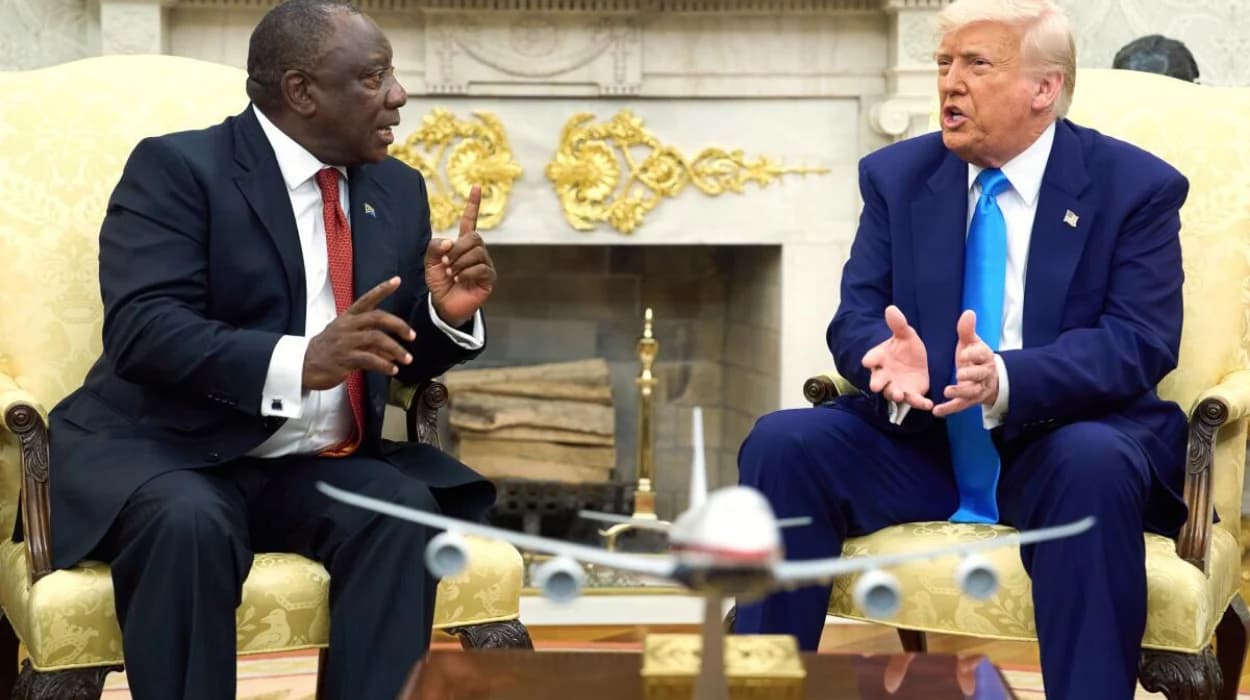Germany says it will push President Trump to reinstate South
Africa to next year's G20 summit after his disputed claims about mistreating
white citizens.
Trump has accused South Africa's black-majority government
of persecuting its white population since his second term in office in January.
In May, Trump addressed President Cyril Ramaphosa at the White House, citing
widely unsubstantiated accusations of a genocide against white farmers. Elon
Musk, Trump's South African-born buddy, has also referenced this.
Washington skipped the G20 leaders' conference in
Johannesburg before this month, claiming" mortal rights abuses" in
South Africa. Despite demurrers from the United States, the conference espoused
a protest addressing the climate extremity and other global challenges.
In a social media post on Wednesday, Trump stated that"
South Africa has demonstrated to the world that they aren't a country good of class
anywhere" and that he'd not invite the country to the coming peak.
Ramaphosa's spokeswoman, Vincent Magwenya, told Reuters that
"a lot" of G20 members had given private messages of solidarity to
South Africa, but did not name individual countries.
German Chancellor Friedrich Merz expressed a desire to
convince Trump to issue an invitation to South Africa.
"In my view, the G7 and G20 are formats that should
not be made smaller without good reason,"
Merz told reporters in Berlin.
"I will try to convince him (Trump) to invite the
South African government as well."
According to Ramaphosa's administration, South Africa will continue
to participate in the G20 despite criticism from other countries.
In his Wednesday post, Trump cited Pretoria's refusal to
give over the G20 presidency to a representative from the US Embassy at the end
of the Johannesburg conference as a basis for their exclusion from G20
meetings.
According to South Africa, the U.S. delegation did not
attend the meeting and the presidency was transferred to an embassy officer
earlier this week.
It is unclear how Trump could formally remove South Africa,
a founding member of the G20, from the upcoming conference. According to Sikho
Luthango, a scholar at the Cambridge University Institute for Sustainability
Leadership who focuses on the G20, the US may reject visas for its
representatives.
The political impasse adds pressure to ongoing US- South
Africa trade accommodations, which were formerly stressed by Washington's duty
of a 30 tariff on South African significances in August, one of the loftiest in
Africa.
In February, Trump inked an administrative order to reduce
US fiscal support to South Africa, which was primarily concentrated on
combating HIV/ AIDS.
What diplomatic steps can Germany take to persuade the US president?
Germany can initiate high-position bilateral addresses, with
Chancellor Friedrich Merz tête-à-tête engaging President Trump via phone calls
or a White House visit to emphasize participating transatlantic interests and
the pitfalls of alienating G20 mates like South Africa.
Offering palpable impulses, similar as Germany's commitment
to increased NATO defense spending or common trade enterprise against China,
aligns with Trump's precedents and strengthens conclusive influence. Merz has
formerly gestured intent to" convert" Trump directly, erecting on
recent US- EU trade successes touted by the administration.
Using G20 and EU platforms, Germany can rally abettors like the UK, France, and India to issue common statements affirming South Africa's foundational part, creating political pressure without battle. Coordinating at forthcoming G20 introductory meetings underscores agreement against unilateral rejections.
